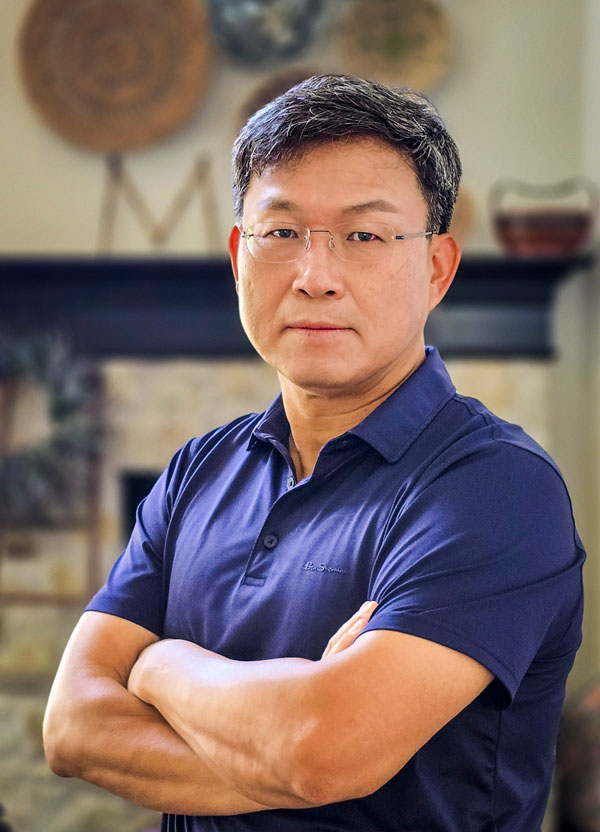 Associate professor of biomedical engineering and founder of Bioprinting Laboratories Inc., which offers innovative 3D cell culture devices — pillar and perfusion plates –
and bioprinted human tissuesderived from pluripotent stem cells (organoids) within
these device for organoid-based testing of new drug candidates
Associate professor of biomedical engineering and founder of Bioprinting Laboratories Inc., which offers innovative 3D cell culture devices — pillar and perfusion plates –
and bioprinted human tissuesderived from pluripotent stem cells (organoids) within
these device for organoid-based testing of new drug candidates
Dr. Moo-Yeal Lee’s journey from pioneering 3D bioprinting to founding a startup exemplifies how UNT’s culture of research and innovation can spark business-minded thinking and real-world impact. A biomedical engineer and early contributor to 3D cell printing, Dr. Lee established his first company through research on microarray bioprinting of enzymes and cells in hydrogels. Ultimately, high equipment costs resulted in limited accessibility of the technology, prompting him to pivot to a new business technology. The experience taught him that innovation must be both powerful and user-friendly to succeed in the market.
“I learned from failure and designed something anyone could use without buying expensive equipment,” he says.
That insight led to the 2017 founding of Bioprinting Laboratories, Inc., centered around his invention — pillar and perfusion plates. These microfluidic devices allow scalable, high-throughput 3D organoid culture and drug testing without specialized equipment, making them highly accessible to pharmaceutical, biotech and academic researchers.
“We’re trying to create human tissue in the lab and use that tissue for drug testing,” says Lee.
Importantly, this technology also replaces animal testing with human-relevant models. Dr. Lee aims to reduce reliance on animal testing for efficacy and toxicity evaluations, which are frequently inaccurate.
With two patents licensed through universities, multiple NIH SBIR/STTR awards, and angel investment secured in 2023, Dr. Lee commercially launched the plates commercially in 2024. He emphasizes that becoming an entrepreneur has not been without challenges but has been a learning experience for him.
“Operating a company is very different from operating a lab,” he says. “Every day I’m learning something new.”